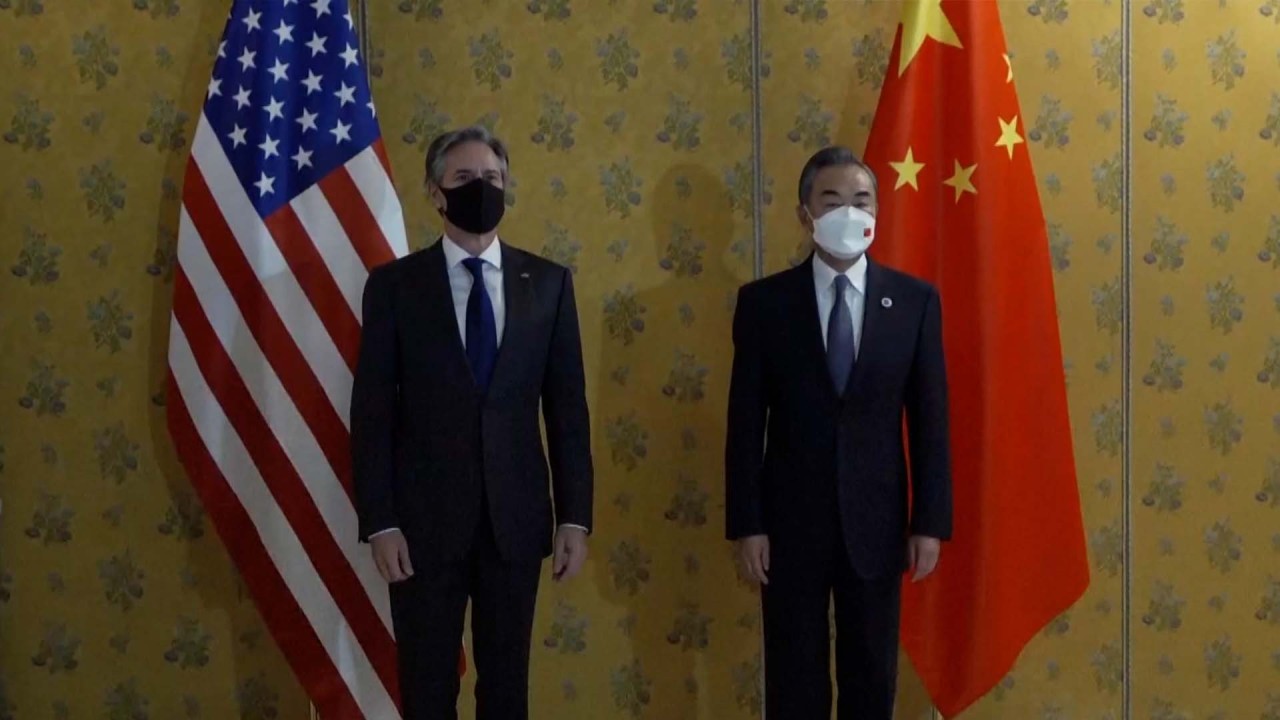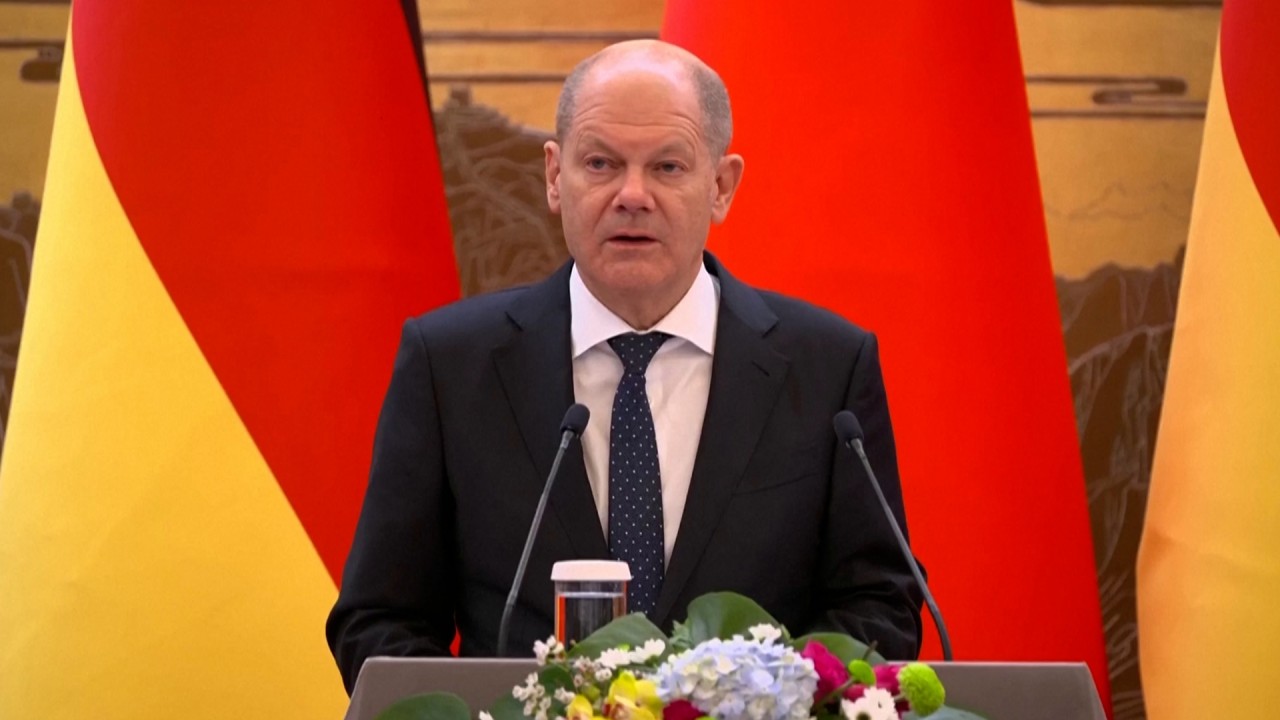
2023: China’s year to reinforce Russia ties and repair links with Europe, Asia
- Foreign Minister Wang Yi looks ahead, warning Washington against further efforts to contain and suppress Beijing
- Wang also defends his country’s position on Ukraine, saying China has sought solutions with Chinese characteristics
Chinese Foreign Minister Wang Yi made the pledge on Sunday, as he also indicated Beijing’s intention to loosen its pandemic-related border controls to “facilitate the flow of personnel” and help a global economic recovery.
While agreeing with US Secretary of State Antony Blinken, who is expected to visit Beijing early next year, to keep lines of communications open, China’s top diplomat nonetheless warned against Washington’s containment and suppression of Beijing.
During his detailed review of China’s diplomatic activities over the past year on Sunday, Wang described 2022 as a critical year when Beijing “scored historic achievements” and rose to “challenges of high winds and choppy waters in the global environment”.
He sought to portray US President Joe Biden’s alliance-based approach on China as “power politics and bullying” and urged Washington to “change its course” by rejecting bloc confrontation and zero-sum competition.
“As the United States has stubbornly continued to see China as its primary competitor and engage in blatant blockade, suppression and provocation of China, China-US relations plunged into serious difficulties,” he said.
“Playing up competition does all harm and no good, and seeking cooperation is a necessity – not a choice,” he said.
The Chinese diplomat also accused the US of trying to disrupt peace and stability in Asia by pulling Southeast Asian nations away from China and instigating “colour revolutions” in Central Asia.
In his think-tank speech, Wang also defended China’s controversial handling of numerous conflicts, including its self-claimed neutrality on the Ukraine war amid rampant criticism over Beijing’s refusal to condemn Moscow’s aggression.
“China has continued to actively seek solutions with Chinese characteristics to hotspot issues,” he said.
On Ukraine, he said China had “consistently upheld the fundamental principles of objectivity and impartiality, without favouring one side or the other, or adding fuel to the fire, still less seeking selfish gains from the situation”.
At the same time, Wang hailed China’s “good-neighbourliness, friendship and cooperation” with Russia over the past year as “rock-solid”, “free from interference” and “immune from changes in the international environment”.
“As some country is seeking to revive the Cold War mentality and fabricating the false narrative of democracy versus authoritarianism, China and Russia have stood in solidarity with other countries to … steadfastly oppose hegemony and reject a new cold war,” he said.
“We will deepen strategic mutual trust and mutually beneficial cooperation between China and Russia, and cement the China-Russia comprehensive strategic partnership of coordination.”
Wang also vowed to promote high-level exchanges with Europe next year, following recent trips by German Chancellor Olaf Scholz and European Council chief Charles Michel, visits he said underlined “stronger European strategic autonomy”.
“This is complete evidence that China and Europe are each other’s partners, not rivals, and we are each other’s opportunities, not threats,” he said.
Wang, a former Chinese ambassador to Japan, also called on Tokyo to “avoid back-pedalling and flip-flopping”, ahead of a planned China visit by his Japanese counterpart Yoshimasa Hayashi.
He sought to gloss over China’s bitter border row with India amid reports about a violent clash between their frontier troops early this month, saying Beijing stood ready to work with New Delhi to promote “steady and sound growth” of bilateral ties.
Zhao Ma, an associate professor of modern Chinese history and culture at Washington University in St Louis, said that despite Wang’s efforts to promote China’s preferred narrative, it might be hard to change the world’s view of President Xi Jinping’s China.
“There is a clear track record to show Xi’s ambition to modify the American-led global system, his distrust of Washington and its allies, his eagerness to defend China’s territorial claim and push back on any criticism of China’s human rights record, and his willingness to use China’s economic power to reshape regional and even global order. All will continue,” he said.
“However, Xi is facing a host of serious domestic challenges, especially the underperforming economy caused primarily by the zero-Covid policy and simmering grass-roots discontent about the lockdown order. These domestic problems will, and are, forcing China to trim its global ambition or to re-pivot.”
Sourabh Gupta, a senior fellow at the Institute for China-America Studies in Washington, said there was little sign that China was walking away from Russia.
“It is standing exactly where it stood before the invasion, which is that it wishes to enjoy a deep, comprehensive and multifaceted strategic relationship with Moscow, but that the pause button on the relationship must be pressed as long as the hot phase of the Russia-Ukraine war is under way,” he said.
“That finger on the pause button will be lifted in time.”



